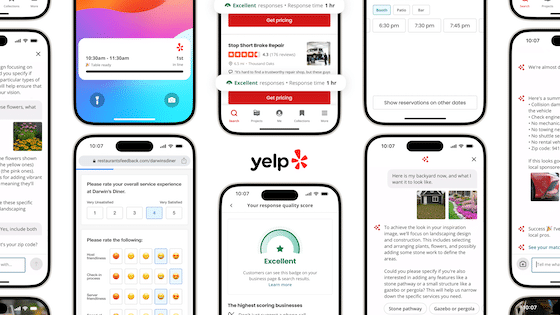Fintech is revolutionizing the small business space. From “contactless everything” to small business lending to new purchase financing methodologies, fintech is making life better for SMBs. And in many ways, making life harder for traditional banks.
We wanted to give this issue the attention it deserved at the recent Localogy 2021 event in Los Angeles. So we assembled a panel broadly titled, “The Future of Payments” (video below). Much of the discussion focused on the hottest topics in the fintech/payments space.
All-Star Panel
And of course, we had the right people on stage to tackle these subjects.
Dave Galvan runs fintech investing for Mastercard. His job involves taking to 500+ companies a year to find out if what they offer intersects with Mastercard’s objectives. Bill Sedgewick runs Pinnacle Cart, a company that provides payments solutions for eCommerce businesses. And Mike Cohen is the global head of business development at Square, which of course is the company that revolutionized point-of-sale for small businesses. Square recently acquired global BNPL player Afterpay for a mere $29 billion.
The Future of Payments
The pandemic has forced a major shift in how we buy things, with eCommerce and ‘contactless everything’ dominating the conversation. But well before Covid, a transformation in how we finance and pay for purchases was taking root. And while Buy Now, Pay Later’s adoption may have been accelerated by the pandemic, its roots are in an earlier intergenerational shift in attitudes toward credit and debt. This shift has massive implications for fintech, retail, eCommerce, and much more. Our panelists will dig deeper into why this transformation is taking place, and what it means for our local ecosystem.
Bill Sedgwick, Pinnacle Cart
Mike Cohen, Square
David Galvan, Mastercard
Here are a few highlights from the panel.
Cracks in the BNPL Foundation?
The session title was, after all, “The Future of Payments.” So it would have been a giant miss if buy now, pay later didn’t absorb a significant share of the discussion.
BNPL is a form of payment that allows consumers to “pay in four” often at no interest when they buy goods online or increasingly in-store. A growing list of platforms with multi-billion dollar valuations like Afterpay, Affirm, Klarna, and many others are battling for the merchant relationships that define success in BNPL.
Merchants pay a fee for BNPL customers. However, the BNPL pltforms pay the merchants upfront, taking on most of the risk themselves.
When we asked if BNPL is starting to look like a bubble, Dave pushed back a bit.
“It’s a bubble driven on consumer value,” Dave said. “It is offering credit in a different way to consumers.”
Dave did acknowledge that some concerning signs are emerging. For example, he referenced a recent Credit Karma survey showing that BNPL default rates are growing. And credit scores are suffering.
“If that continues to happen, we are going to see regulators step in,” he said.
Cash Isn’t King
One of the often unspoken objectives of fintech is to reduce or ultimately eliminate the use of cash. And the panelists agreed that cash, while it may never be completely eliminated, is increasingly marginalized as a method of payment.
“My biggest competitor is cash,” Galvan said.
While Cohen said Square’s mission is all about freeing businesses from being dependent on cash transactions.
“We don’t see much of a need for cash. That’s the way we saw it 12 years ago [when Square was founded],” Mike said. “And even more so now.”
It’s the little things that are holding back the elimination of cash. As Bill noted, he personally has almost eliminated his use of cash, but says tasks like giving out small tips to the hotel staff continue to make carrying around at least a small amount of cash necessary.
Dave noted that he’s aware of at least a few companies building micropayments apps to solve this specific problem.
More Data, Less Risk
Access to capital is a perpetual small business pain point. Banks are loath to lend money to small businesses. In particular, they want little to do with small loans.
The payments space has stepped into this void. A case in point is Square Capital, which uses the payments stream flowing through its customers’ businesses to assess risk. Other fintechs have developed sophisticated underwriting algorithms and even their own proprietary credit scores.
“Fintech is the use of technology to change the world of finance,” Mike said. “Debt and loans all come down to risk. And the more data you have, the smarter you can be with risk.”
Square Capital, as Mike pointed out, gives out thousands of loans each year to Square sellers based on the data flowing through their POS system.
Bill said this real-time data approach to underwriting is a game-changer for small businesses.
“To the extent that you can not require small businesses to provide additional information like you guys are doing with data, that’s a win,” Bill said, reacting to Mike’s comments on using POS data to assess risk.
“It reduces friction. It gets more businesses boarded and it makes it faster. Businesses want to fix pipes or prepare for trial. They don’t want to provide three months’ worth of bank statements.”
Banks Feeling the Heat
With fintechs doing almost everything better than the big banks these days, the banks are feeling the heat. And increasingly they are turning to the fintechs themselves for help.
As Dave points out, with fintech platforms developing such sophisticated credit scoring algorithms, traditional banks have started to incorporate these into their own underwriting.
“If [the banks] don’t do something they are going to get killed,” Dave said of the traditional banks. “When Covid hit, it was a real wake-up call. All their brick-and-mortar locations shut down. So their customers went elsewhere. Banks didn’t have that digital enablement. So now they are fast followers.”
We’ll pause there and cue the full video. Stay tuned for more deep dives and video footage from Localogy 2021…





